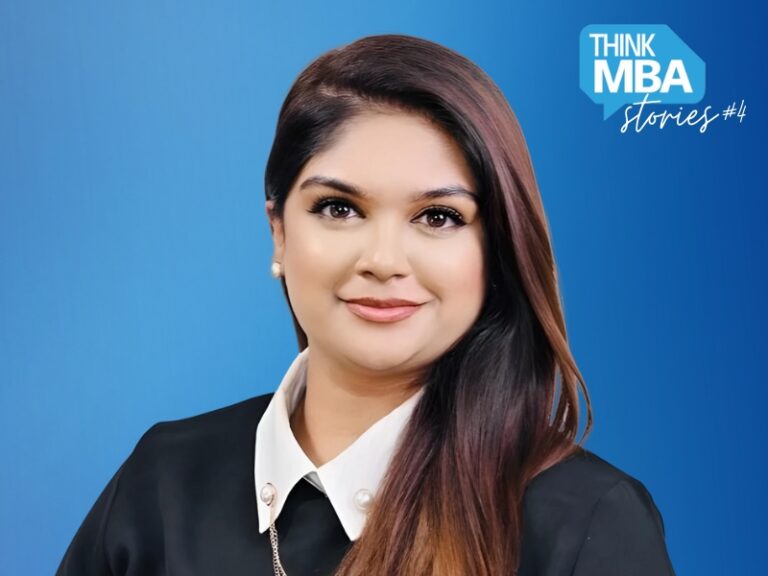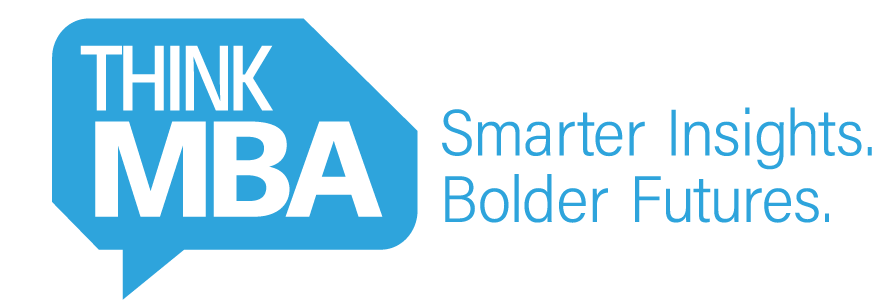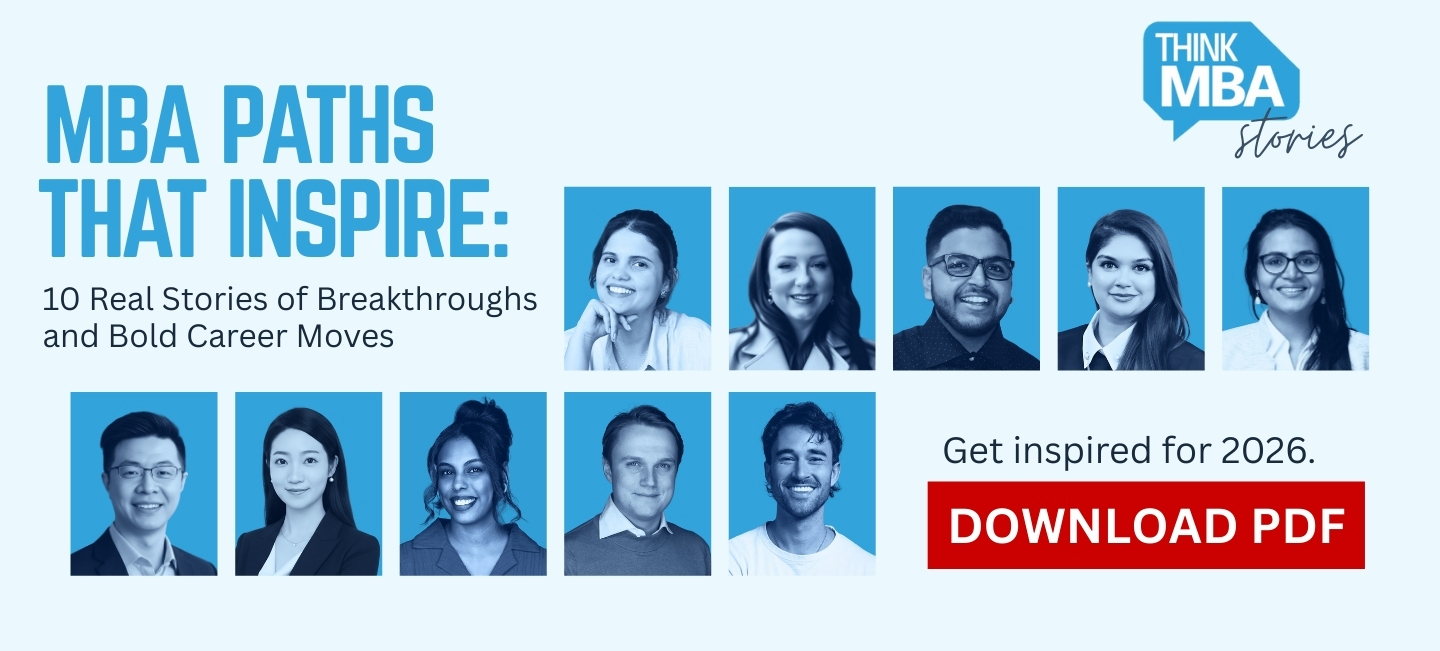Contact Us
[email protected]
Law to Leadership: Mishka Singh’s Strategic MBA Transformation

Editor’s Note: At ThinkMBA, we believe the most powerful insights come from real journeys—not just CVs or school rankings. In this Real Stories interview, we spotlight Mishka Singh, a South African Admitted Attorney whose MBA journey exemplifies the power of strategic growth, resilience, and transformation. From the legal world to academic leadership, Mishka’s story is about stepping beyond professional comfort zones and redefining one’s own potential.
Whether you’re from a non-business background, balancing work and study, or considering the leap into management education, Mishka’s journey offers both inspiration and practical wisdom. This is not just a story of an MBA—it’s a story of vision, grit, and redefining what leadership can look like.
ThinkMBA(TA): Can you briefly describe your career path before the MBA, and what it looks like now?
Mishka Singh(MS): I am an Admitted Attorney of the High Court of South Africa, and much of my professional career has been rooted in law, compliance, and governance. My early path was shaped by a strong focus on legal compliance and data privacy, particularly the Protection of Personal Information Act (POPIA), which has become increasingly central in South Africa’s regulatory and corporate environment.
Alongside my legal expertise, I also serve at a leading private higher education institution as an Academic Programme Leader, which provided me with the opportunity to contribute to shaping academic environments and ensuring institutions operated in line with legal and ethical standards.
When I chose to pursue the MBA, I did so with the conviction that legal knowledge alone was not enough to navigate the complexities of modern organisations. Law had given me the tools to think analytically, but I wanted the ability to think more broadly, to connect the dots between regulation, business strategy, finance, and leadership. The MBA opened that space for me. It taught me how to approach problems not only from the perspective of compliance and governance but also from the lens of innovation, opportunity, and sustainable growth.
Today, my career sits at the intersection of these worlds. I remain deeply committed to the field of data privacy, but I now view my work through a more holistic, strategic lens. My goal is to continue contributing to higher education in South Africa, where there is room to innovate and shape agile, responsive systems. Long term, I plan to pursue doctoral studies, either a DBA or PhD to further my academic and professional contribution. My research focus will remain tied to privacy and governance, but enriched by the strategic and leadership insights I gained during my MBA.
TA: What were the biggest personal or professional challenges you faced during the MBA journey?
MS: The MBA was one of the most rewarding experiences of my life, but it was not without its challenges. Balancing my professional role with the demands of studying required discipline, sacrifice, and resilience. Time management became a skill I had to refine constantly. Juggling competing priorities was exhausting, but it ultimately forced me to sharpen my ability to prioritise, delegate, and work efficiently.
Academically, one of the steepest learning curves came in areas that were far removed from my legal training. Subjects such as management accounting, economics, and quantitative methods initially felt foreign. I had to confront not only new content but also the self-doubt that comes with stepping into a domain where others seemed more comfortable. At first, it was humbling. But with persistence, I came to appreciate the power of stretching myself beyond my professional comfort zone. I ended up performing well in areas I once thought were beyond my reach, an achievement that left me both humbled and proud.
Completing the MBA fully online brought its own set of unique difficulties. Learning virtually requires a level of self-motivation and focus that is different from a traditional classroom. Yet it also provided me with opportunities that I would not have had otherwise. Interactive simulations, such as the Harvard Everest Challenge, tested my leadership and teamwork in ways that were both practical and memorable. They reminded me that leadership often emerges in moments of uncertainty and pressure, and that effective decision-making requires both collaboration and courage.
Looking back, the challenges were as formative as the content itself. They taught me resilience, adaptability, and the belief that I can succeed even in spaces that initially seem overwhelming. I am fortunate to be employed at an institution that has shown me unwavering support which made navigating the challenges of the MBA far more manageable, giving me the resources and encouragement to push through and excel.
“Progress matters more than perfection, and once I accepted that, the pressure became manageable.“
TA: Did you encounter any surprising lessons or unexpected experiences?
MS: The MBA challenged me to grow in ways I had not anticipated. I expected to gain technical knowledge in business and management, but what surprised me most was how profoundly the programme reshaped my perspective on leadership, collaboration, and the role of education in society.
The leadership modules were particularly transformative. Working through case studies that spanned industries and geographies, I came to appreciate the complexity of leadership in practice. Leadership is not about authority, it is about influence, adaptability, and the ability to bring people together around a shared vision. I found myself reflecting on how these lessons apply not only in business but also in law, education, and governance.
Equally impactful was the sense of community that emerged from the program. Despite completing my MBA entirely online, I built meaningful relationships with peers from diverse backgrounds and industries. Their experiences enriched my own learning and gave me insights into sectors I might otherwise never have encountered. The peer-to-peer learning was as valuable as the formal curriculum, and it reminded me of the importance of diversity in thought and experience.
Another unexpected lesson was discovering new areas of interest. While my professional background was rooted in compliance and privacy, I found myself increasingly drawn to fields like audit and risk. The MBA revealed how these functions underpin organisational resilience and long-term sustainability. I can see myself exploring these areas further in the future, perhaps integrating them with my expertise in data privacy to build a broader platform of value.
Ultimately, the biggest takeaway was not just knowledge, but confidence. The MBA proved to me that I can adapt, that I can thrive outside my comfort zone, and that resilience is one of the most powerful tools any professional can cultivate. It confirmed for me the value of education, not only in shaping careers but in shaping societies. That is why I remain committed to giving back to South Africa’s higher education sector, contributing to institutions that are creating opportunities for the next generation of leaders.
As Nelson Mandela so powerfully said, “Education is the most powerful weapon which you can use to change the world.” My hope is to continue using education, both my own and the opportunities I help create for others, as a force for transformation, impact, and progress.
“The MBA didn’t just teach me new skills; it reshaped how I think, problem-solve, and lead.“
TA: What was the single most valuable skill or mindset shift you gained from the MBA that you couldn’t have developed through legal practice alone?
MS: The most valuable mindset shift I gained from my MBA was learning to think strategically and holistically. In legal practice, I was trained to analyse details, identify risks, and ensure compliance. That sharp focus is invaluable, but it often leaves little room for seeing the bigger picture. The MBA challenged me to step back, consider multiple perspectives, and balance competing priorities across business, finance, and leadership. One vivid example was a business simulation where I had to make decisions that affected finance, operations, and make strategically informed decisions. It was daunting at first, but it taught me to integrate analytical thinking with strategic foresight, a skill I couldn’t have developed through legal practice alone. That shift has changed the way I approach problems, allowing me to combine precision with broader organisational insight.
TA: Looking back, what advice would you give to someone from a non-business background (like law) who is considering an MBA but is unsure whether it’s the right fit?
MS: For anyone coming from a non-business field like law, my advice is simple: take the leap and commit fully. An MBA is an opportunity to expand your thinking, but growth only happens if you immerse yourself in the experience. Don’t shy away from subjects that feel unfamiliar, instead, use online tools, supplementary readings, and practical exercises to build your understanding. Engage actively with your peers, participate in discussions, and explore multiple perspectives to see problems in new ways. Treat case studies, simulations, and group projects as learning laboratories, not just assignments, and give yourself permission to learn from mistakes. The key is curiosity, persistence, and openness. the MBA is less about prior knowledge and more about how willing you are to challenge yourself, integrate new ways of thinking, and apply them across your professional and personal life.
TA: How did you decide on your MBA programme, and what factors mattered most to you when making that choice?
MS: Choosing an MBA programme was a deliberate process. I prioritised flexibility, academic rigor, and diversity, particularly since I was balancing professional responsibilities. I wanted a programme that offered high-quality content, interactive learning, and the chance to engage with peers from varied backgrounds. Accreditation and recognition were important, but so was the programme’s emphasis on critical thinking, strategic leadership, and practical application. I was especially drawn to the way the curriculum incorporated disruptive learning methods, including simulations and scenario-based exercises, which pushed me to challenge assumptions and think creatively about problem-solving. I also considered whether the learning environment would challenge me to grow outside my comfort zone, something I knew was essential for making the MBA transformative.
TA: What practical routines or strategies helped you manage the pressure of balancing work, life, and study most effectively?
MS: Balancing everything was one of the hardest parts of the MBA, but structure and a pinch of resilience guided me. I set up a weekly rhythm, carving out dedicated time slots for study and breaking tasks into micro-goals. This kept me from feeling overwhelmed and gave me a sense of achievement as I ticked things off. Peer support groups were another lifeline — not just for accountability, but for support when the workload felt heavy. I also leaned on small but effective routines: early mornings for reading, short breaks to reset, and switching off devices when I needed deep focus. Perhaps most importantly, I learned that progress matters more than perfection, and once I accepted that, the pressure became manageable.
TA: You mentioned subjects like accounting and economics felt foreign – how did you move from initial self-doubt to confidence in those areas?
MS: At first, I was completely out of my depth in subjects like accounting and economics. I had no background, and the technical language coupled with graphs, formulas and numbers felt intimidating. What helped me was breaking concepts into small, manageable steps and practicing consistently, even when it felt slow. I also leaned heavily on simulations, seeing theory play out in real-world scenarios made abstract ideas click. Over time, those small wins built momentum, and I realised that competence, and confidence come from persistence. Looking back, those subjects that scared me most became the ones I’m proudest of mastering.
TA: How did your institution’s support make a difference in your MBA journey, and what should prospective students look for in terms of institutional/company support before enrolling?
MS: The support of my institution made a profound difference. Even though I studied online, I never felt like I was on my own. There were resources, mentors, and faculty who guided us, as well as peers who became collaborators and friends. That support system was often what carried me through the toughest moments. For prospective students, I’d say, look beyond the course content and ask, “What structures are in place to support me when the pressure builds?” An institution that prioritises student success through mentorship, community, and flexibility can transform a demanding MBA into a journey of resilience and growth.
TA: Even though your MBA was online, you mention you still built strong peer connections – what advice do you have for online MBA students who want to make the most of networking?
MS: Networking in an online MBA doesn’t happen by accident, you have to be proactive. I made a point of engaging in discussion groups, setting up virtual chats, and giving my full energy to group assignments. Those interactions weren’t just academic; they built trust and real connections. My advice to online MBA students is would be to show up consistently, share openly, and be curious about others’ perspectives. You might be surprised at how strong virtual networks can be when you approach them with intention. Some of my closest professional relationships now started in those online spaces.
“I expected knowledge, in leadership, strategy, finance, but I didn’t expect the MBA to change the way I saw myself.”
TA: What surprised you most about the MBA experience – something you didn’t expect to learn or gain at the start?
MS: What surprised me most was the depth of personal growth. I expected knowledge, in leadership, strategy, finance, but I didn’t expect the MBA to change the way I saw myself. Through
simulations, case studies, and collaborative projects, I discovered resilience I didn’t know I had, and I found joy in subjects I never thought I’d enjoy, like risk and audit. I also gained a sense of confidence that went beyond academics, the realisation that I can step into unfamiliar territory, work hard, and emerge stronger. The MBA didn’t just teach me new skills; it reshaped how I think, problem-solve, and lead.





